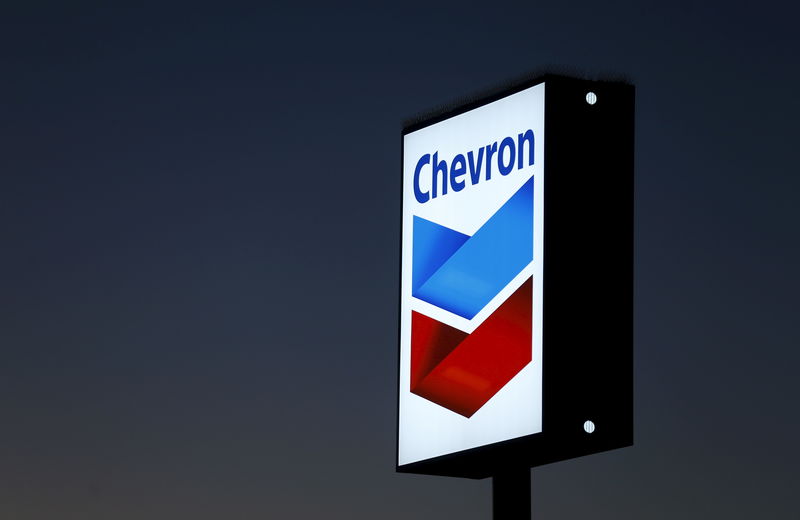By Ernest Scheyder
HOUSTON (Reuters) - Exxon Mobil Corp (NYSE:XOM) and Chevron (NYSE:CVX) Corpon Friday reported their most dismal quarterly results in more than a decade on low oil prices and an oversupplied fuel market that hurt what had been lucrative refining margins.
As crude prices slid 60 percent from mid-2014, large integrated energy companies have touted the virtues of a business model that both produces oil and refines it. Refiners typically see profitability increase when the price of their main feedstock - oil - falls.
But growing fuel inventories and weak demand are now hammering the refining industry, turning a typical advantage for integrated oil companies on its head.
First-quarter pain in the downstream units, which came after major U.S. refiners slashed the amount of cheap crude they were processing in February, is a sign the road ahead for oil majors may turn even rockier. Their upstream exploration and production units have been reeling for months from the crude price crash.
Both Exxon and Chevron sought in Friday conference calls with investors and analysts to downplay the weakness in their refining units.
Chevron Chief Financial Officer Pat Yarrington acknowledged lower worldwide refining margins on the call.
Jeff Woodbury, Exxon's vice president of investor relations, blamed the weak results on lower demand and high inventories of refined gasoline and other products after a relatively warm North American winter.
Lower profits from Exxon and Chevron's refining divisions contributed to weaker overall results for both companies.
Exxon's net income fell 63 percent to $1.81 billion, its lowest since 1999, although analysts had expected a bigger drop.
Chevron, the second-largest U.S. oil company behind Exxon, reported a net loss of $725 million, compared with a year-earlier net profit of $2.57 billion. The loss was the biggest since 2001, and earnings before special items missed Wall Street estimates.
Exxon shares were up 0.2 percent at $88.20 in afternoon trading, while Chevron fell 0.8 percent to $101.59.
For the past six years, U.S. refiners from Texas to Philadelphia have bought every barrel of crude they could lay their hands on to cash in on a golden era of healthy margins.
But those are fast disappearing. Among refiners, Marathon Petroleum Corp (NYSE:MPC) barely eked out a profit in the first quarter, and Phillip 66's consolidated earnings fell by more than half a billion dollars to $385 million.
Profits were down by nearly half at $906 million at Exxon's refining unit and at $735 million at Chevron's.
In February, at least five U.S. refiners have voluntarily reduced output of fuels in the most widespread cuts since the global financial crisis.
Independent refiners including Valero Energy Corp (NYSE:VLO), PBF Energy Inc, Philadelphia Energy Solutions and Monroe Energy, a unit of Delta Air Lines Inc (NYSE:DAL), have curbed output, capitulating to record stockpiles and sluggish demand.
Exxon has also cut the amount of crude it processes at one Texas refinery.
While so-called run cuts are common for maintenance, they are rare for purely economic reasons.
If the closures gather pace and refineries curb their purchases of crude further, this will heap further pressure on oil prices exploration and production companies can command.
